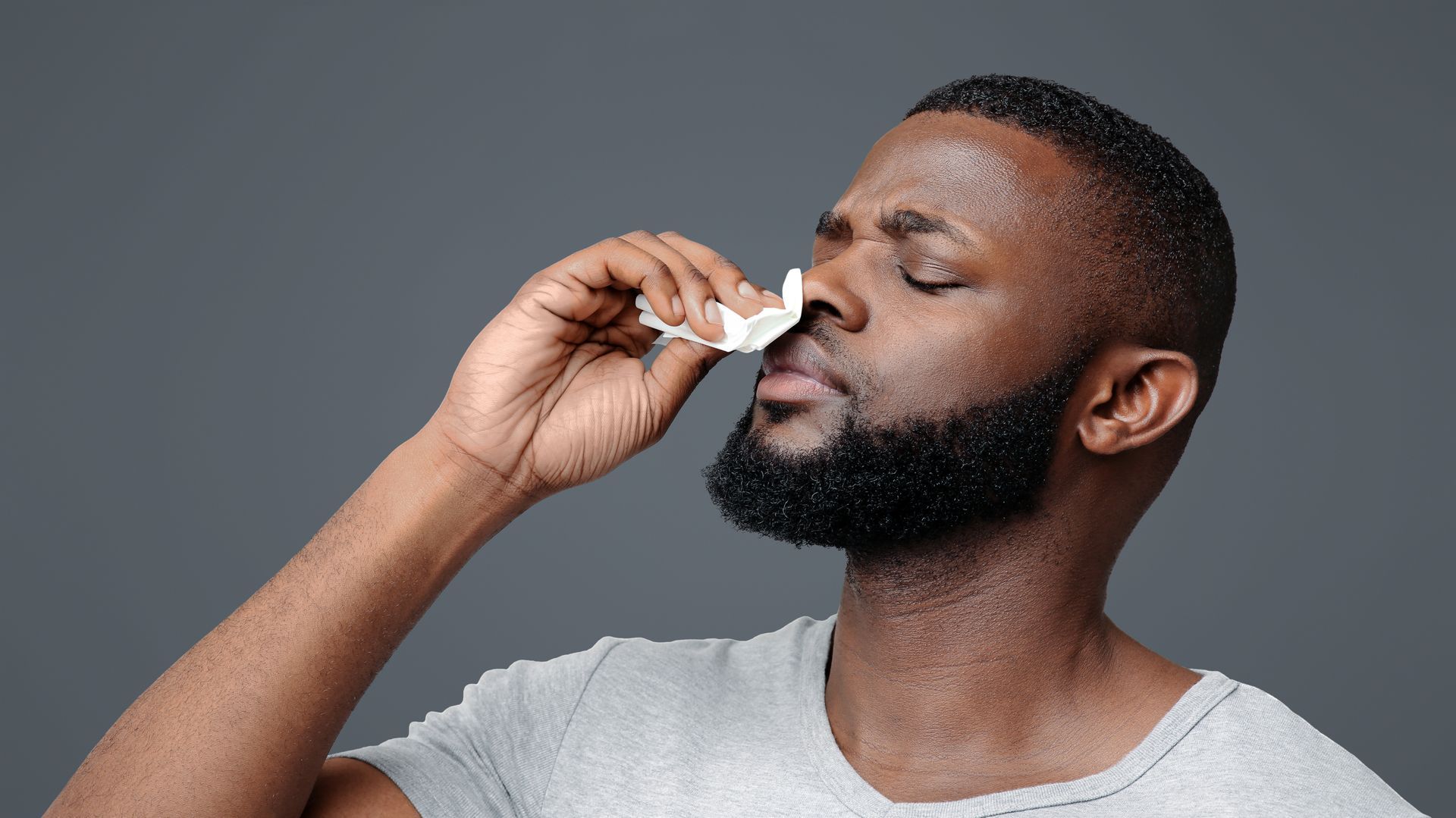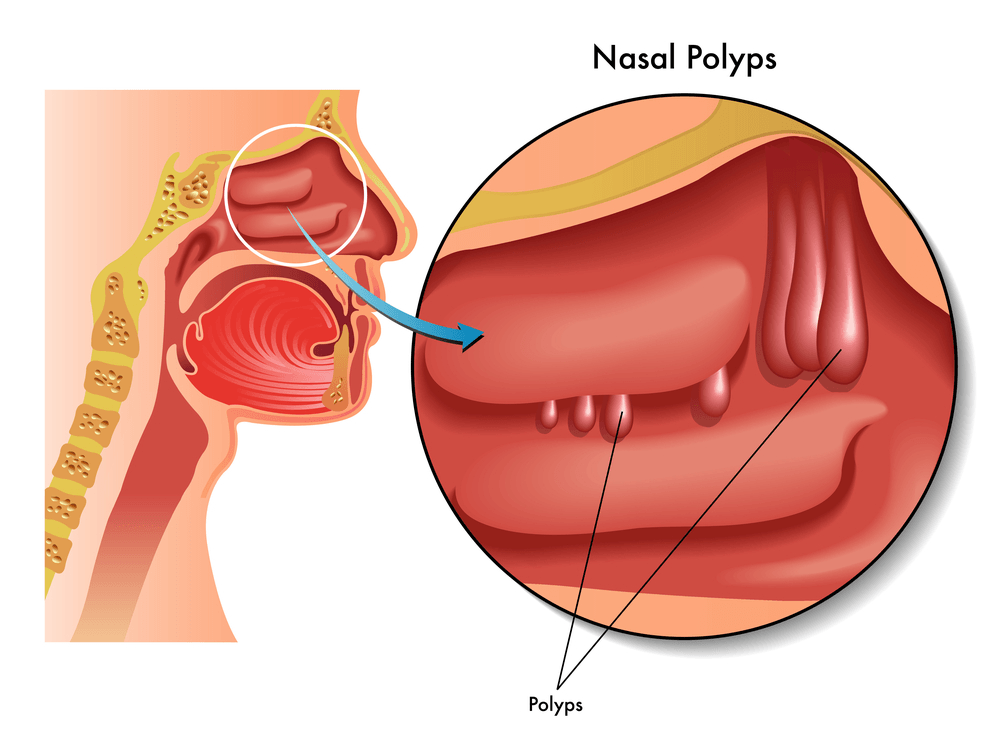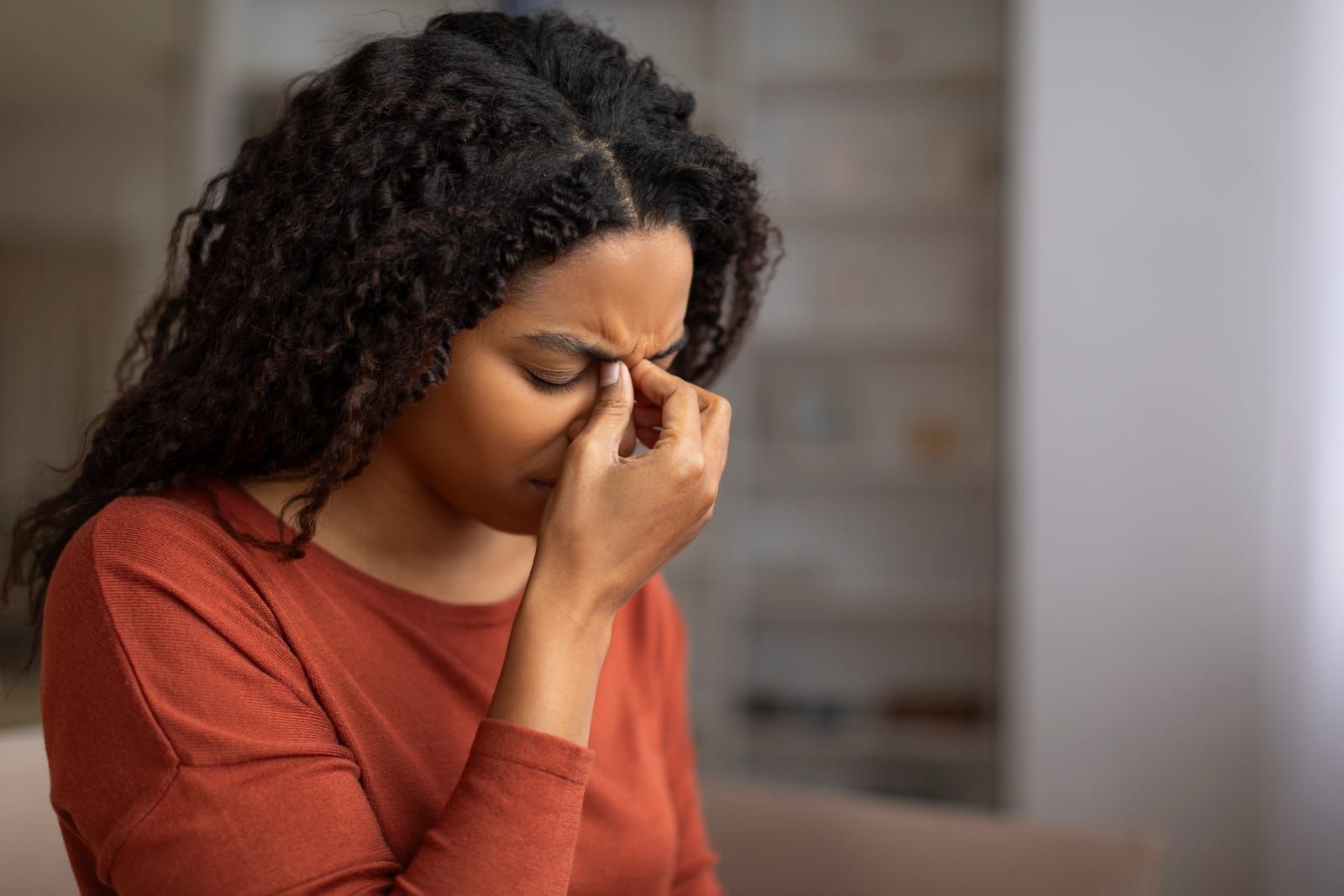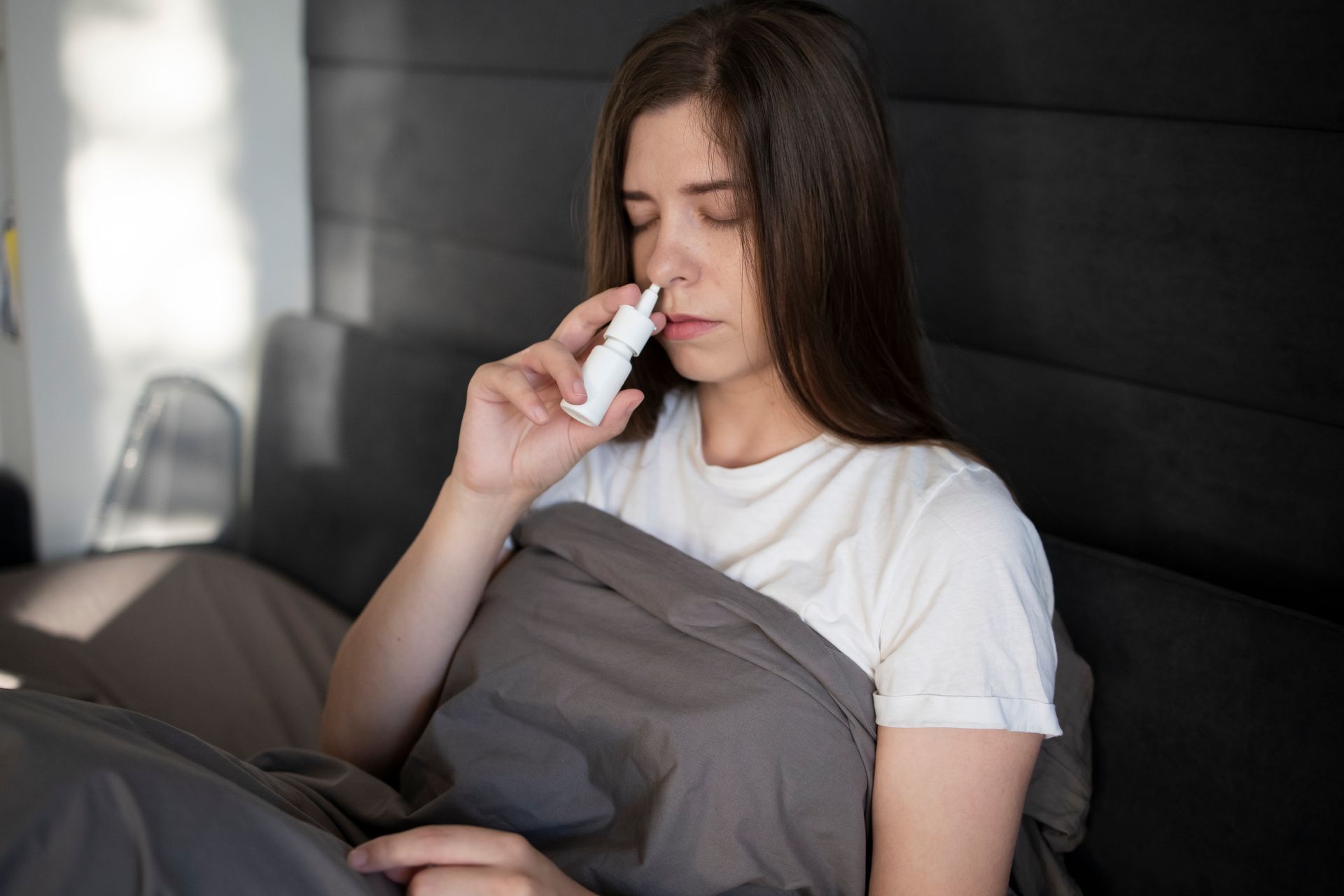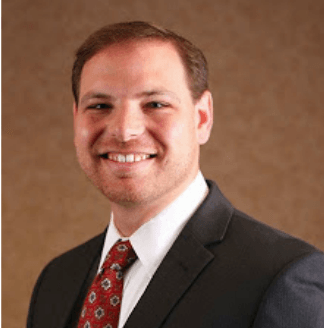What Happens if Nasal Polyps Go Untreated?
Nasal polyps can cause severe nasal congestion and loss of smell. Associated with asthma, having several sinus infections, or having allergies that affect your airways, anyone can suffer from this inflammatory condition. Dr. Thomas Higgins in Louisville, KY, can offer effective treatments for this condition.
But is addressing the problem really necessary or can your polyps be left untreated? Will they go away on their own? In most cases, treatment is highly recommended because larger polyps can cause many serious issues such as breathing problems, sleep disturbance, a loss of your senses of smell and taste, and recurring sinus infections. Today, let's examine what symptoms you might experience if you don't get your polyps reduced or removed.
Do Nasal Polyps Need to Be Treated?
Polyps are small, soft growths that can occur on their own or in small groups, and they might not cause a big issue at first, especially if they are small. Fortunately, they are usually non-cancerous, so polyps are not a life-threatening issue for the vast majority of patients.
Despite this, they can cause significant issues once they grow to a certain size. For example, you might have trouble breathing during the day or at night, you might not smell and taste as well as before, and you could get more frequent sinus infections. What's more, polyps are unlikely to go away spontaneously without treatment. For this reason, you should always visit a specialist when you've been diagnosed with this condition.
Breathing Problems
There are several reasons why patients might experience breathing problems, such as allergies, blocked sinuses, and being overweight. However, many of these issues are temporary and can be addressed holistically, while shortness of breath due to
polyps is a permanent problem unless they are removed.
As the growths expand in your nasal passages, they block the airflow, thereby causing breathing trouble. When you visit your doctor because of this issue, they might recommend treatment that reduces the size of the polyp or eliminates it entirely.
Sleep Apnea
Obstructive sleep apnea happens when you temporarily stop breathing during the night because your airways are closed off by soft tissues. As a result, you might snore more, and you'll feel more tired during the day because you didn't rest properly at night. Some patients also report a morning headache, irritability, and difficulty paying attention.
In the long run, this condition shouldn't be taken lightly because it can cause significant issues such as heart trouble. Since your body doesn't get enough oxygen during the night, your blood pressure is increased and strain is put on your heart. What's more, you might no longer be eligible for certain types of surgery, since the inability to breathe can cause complications.
While nasal polyps are not usually the main cause of sleep apnea, the nasal blockage worsens sleep apnea symptoms and can make it difficult to use a CPAP. A recent treatment called Inspire Sleep is helping sleep apnea patients without the need for CPAP. (Contact us to learn more.)
Loss of Your Senses of Smell and Taste
As we grow older, it's natural that we have a reduced sense of smell and taste. If you know you have polyps and you've experienced a sudden drop in the sensitivity of your nose or taste buds, this condition might be to blame. You should visit us when this happens because, unlike many other conditions related to these senses, polyps can often still be treated and you can regain your full sense of smell and taste.
Recurring Sinus Infections
Finally, you will also notice that you're more susceptible to
sinus infections when you have large, untreated polyps in your nose. These can be very unpleasant because they include symptoms of the common cold such as fever, mucous discharge coming from the nose, and a blocked nose, but also headaches, toothache, and bad breath.
Having sinusitis on a regular basis can significantly affect your life, as you may not be able to complete all of your regular tasks well. You'll feel fatigued from the constant infection, which can affect your performance at work and your ability to participate in leisure activities.
What Are the Initial Symptoms of Polyps?
Now that you know why you shouldn't leave nasal polyps untreated for a long time, you might wonder whether there are any early signs that can indicate an issue. Although some of the symptoms that indicate polyps can be similar to those of sinusitis or the common cold, you'll know that it's a persistent problem when they don't disappear after two to three weeks.
If you suffer from a runny nose and stuffiness, postnasal drip, a loss of your senses of smell and taste, and pain in several areas of the face and teeth, you should speak to a specialist in your local Louisville, KY area, who can determine whether polyps are the cause.
A
Runny Nose and Stuffiness
When your polyps start to grow and obstruct your nasal passages, they will trap some of the mucus your body produces to flush out waste products. It will be harder for you to get rid of the mucus by blowing your nose, so you will suffer from increased stuffiness. Additionally, the passages in your nose are more likely to get inflamed, and you might suffer from frequent sinus infections.
People who have polyps often feel like they have a persistent cold. If you notice that you've had a blocked nose for several weeks, it might be time to see a specialist and find out whether a polyp is causing the issue.
Postnasal Drip
A postnasal drip happens when your mucus runs down the back of your throat instead of coming out of your nose. When this occurs, you will want to clear your throat constantly, and you might cough more than usual. Many patients also develop a sore or scratchy throat over time. A
postnasal drip shouldn't be ignored because it can cause an ear infection when your mucus clogs up your Eustachian tube.
Pain in the Face or Teeth
Not everyone who has polyps experiences pain, but if your nasal passages are crowded by a large number of small polyps or by one very large growth, you might start to experience pressure in the area. This can feel like a headache or a toothache, but if there are no indications of dental trouble and your symptoms don't match up with those of a migraine, a polyp could be behind the issue.
What Does Polyp Treatment in Louisville, KY Involve?
When you come to the clinic and speak to
Dr. Higgins about your polyps, he will suggest a treatment method that fits your current needs. Some polyps can be removed with the help of drugs. If this doesn't work, he can perform an endoscopic polyp removal procedure.
Functional endoscopic sinus surgery, also called FESS, works almost immediately, and your symptoms should disappear as soon as the procedure is over.
Nasal polyps should almost always be treated because they can cause significant issues such as breathing trouble, obstructive sleep apnea, a loss of your senses of smell and taste, and more frequent sinus infections. If you have been diagnosed with polyps, you should seek out a specialist who can help you to address the issue.
Schedule an appointment with us at Higgins Sinus in Louisville, KY to book an initial consultation and find out more about polyp treatment. Dr. Thomas Higgins will evaluate your situation carefully and suggest the least invasive treatment method possible. That way, you can prevent long-term issues and get back to normal as soon as possible.
Thomas S. Higgins, MD, MSPH
Dad. Husband. Sinus Nerd.
